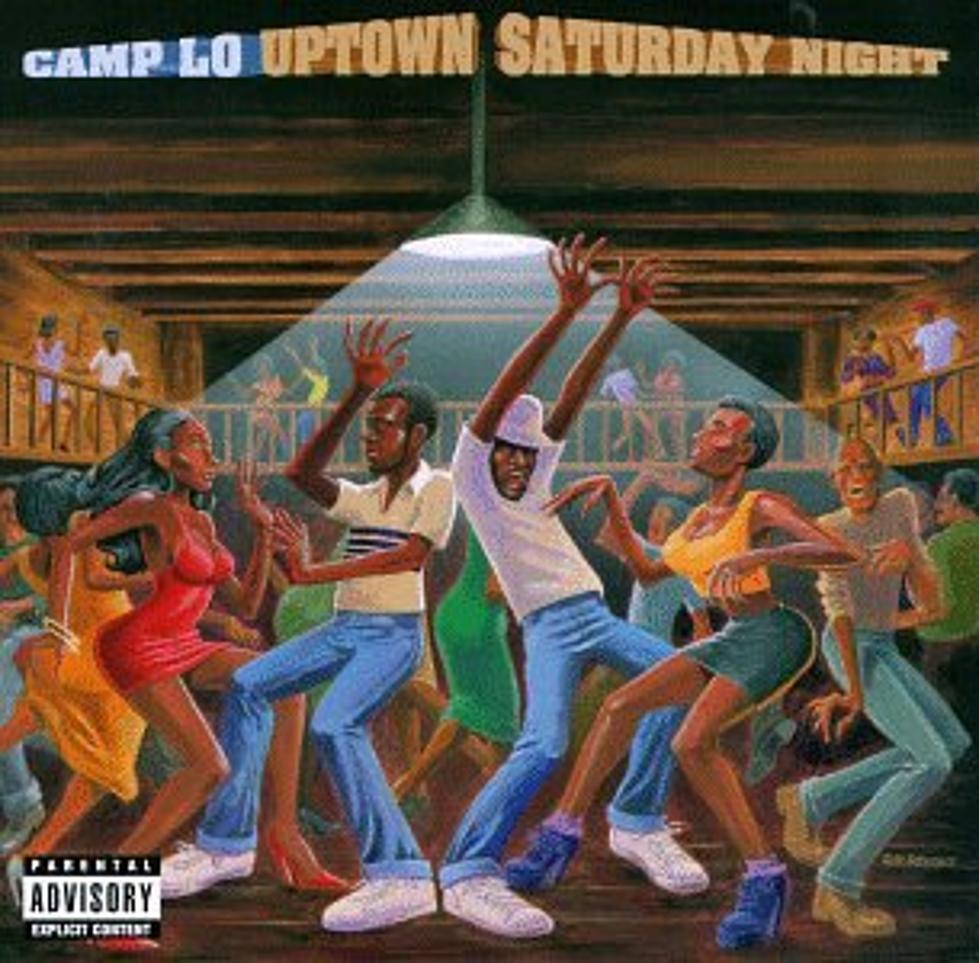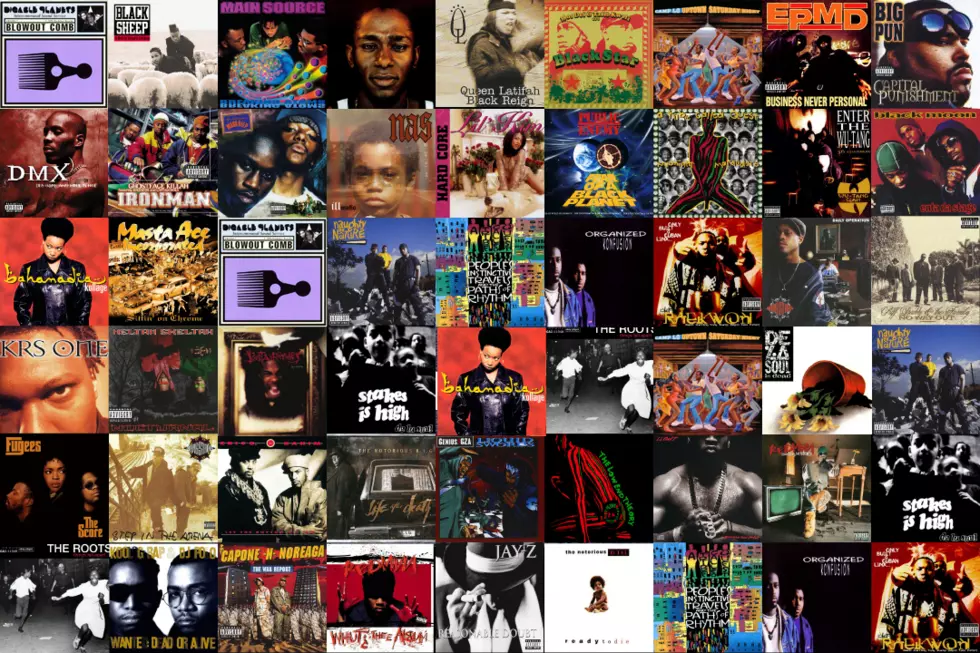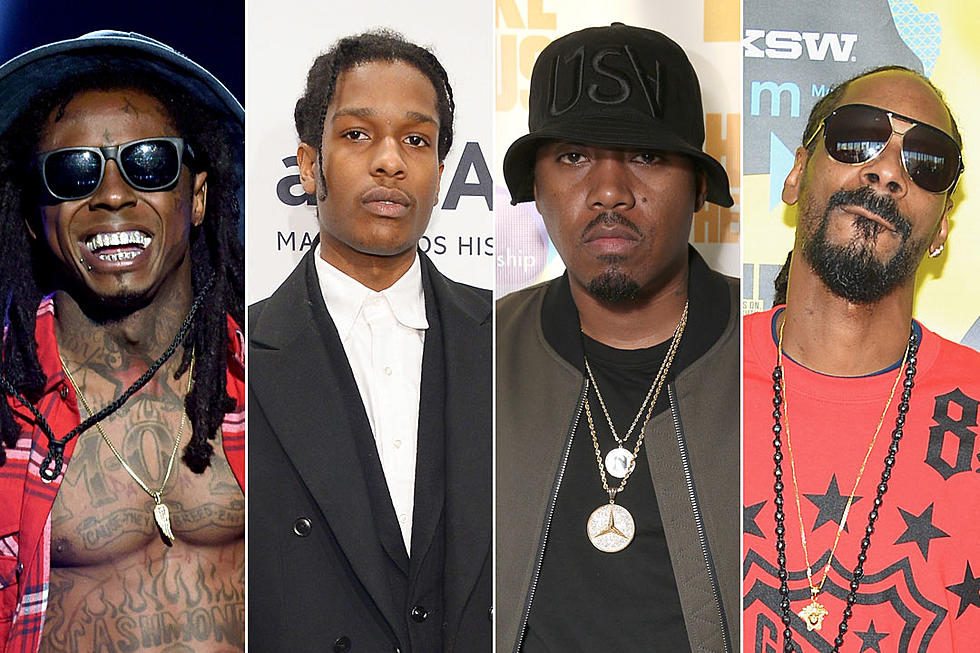
Camp Lo’s ‘Uptown Saturday Night:’ A Look Back At an Unsung 90s Classic
In 1997, hip-hop was enjoying a unprecedented boom. For the better part of a decade, the genre had had been growing creatively and expanding commercially. New York rap had been enjoying four year post-G-Funk resurgence that had been highlighted by acclaimed debuts from iconic acts like Wu-Tang Clan, the Notorious B.I.G., Nas, and Jay Z, as well as landmark releases from Redman, A Tribe Called Quest and Mobb Deep, among others. 1997 opened with New York's dominance firmly re-established.
While the year would come to be defined by the murder of the Notorious B.I.G., and the resulting "jiggy" shift in the wake of that tragedy, the debut album from Bronx duo Camp Lo, would follow a quirkier tradition; celebrating their refreshingly underground style and even flirting with the mainstream--courtesy of one of the greatest rap singles of all time.
Rappers Sonny Cheeba and Geechi Suede hailed from the mean streets of The Bronx, and were originally separate entities. Producer Ski Beatz introduced the two; soon thereafter, Geechi Suede, who had already been working under the tutelage of Ski, would begin to bounce ideas off of Sonny Cheeba, who was attending school in Virginia at the time.
Deciding to join forces on a whim, the duo recorded a Ski-produced demo called "What's The Word, Baby." Ski was impressed with the group's potential, but wasn't fully sold. Not to be deterred, Geechi Suede and Sonny Cheeba went back to the drawing board and would emerge with an eight-song demo that would be shopped to various record labels. The pair was originally known as the Lost Boys, until Dame Dash convinced them to consider a name change.
"We had “C-Lo” first, and we found out there was a Cee-Lo Green, so we can’t really rock that," Sonny Cheeba recalled in an interview with bboysounds. "So we kept the ‘C’. We used to roll c-lo for push-ups while we were waiting on Ski outside the studio."The “Lo” means you’re probably not gonna hear nobody else with these flows, you’re probably not gonna hear nobody rocking’ what we dress in, and you’re probably not gonna hear too many cats rocking’ over the music we decide to rock over. That’s the 'Lo' part of it."
Now officially "Camp Lo," and with a record deal in tow, the duo released their debut single "Coolie High," and the Ski Beatz produced song earned them their deal with Profile, in 1995. The original version of the song prominently sampled Michael Jackson's "The Lady in My Life" sample, but the sample couldn't be cleared; the commercially-released version would instead feature a flip of Janet Jackson's "Funny How Time Flies." The song, would peak at No. 25 on the Hot Rap Singles chart and earn a placement on The Great White Hype soundtrack; introducing Camp-Lo to the greater public; and setting in motion the making of their debut: Uptown Saturday Night.
It would be a full year after their initial signing with Profile before Camp-Lo would release Uptown Saturday Night. The group put that long gestation to good use; meticulously cultivating their sound and and crafting each record. In the wake of the success of "Coolie High," Camp Lo landed an opening gig for De La Soul on the Stakes Is High Tour--which would lead to major collaborations on two Uptown Saturday Night tracks. The Trugoy-produced "Hollywood B-Side" was gifted to Camp-Lo after the group stumbled upon it during their shared time on the road. Pop culture-referencing lyrics like "Rickety Rocket was my favorite cartoon/And after marriage comes the honeymoon/Who love Popeye, Alice the Goon/Ate the Honeycomb cereal with my big spoon," courtesy of Trugoy, perfectly compliment Sonny Cheeba and Geechi Suede's zany musings and makes for a classic collaboration.
The other prominent collaboration born of the Stakes Is High Tour is "Swing," which sees Geechie Suede matching wits with tour-mate Ish of Digable Planets. But more than just being the routine collaboration of two emcees, the move proved to be a bit calculated on Camp Lo's part, and was the result of a few choice reviews of "Coolie High."
"They would write up the reviews about one of the members sounding like Digable Planets," Geechi Suede explains. "Obviously, we knew who it was, so [Sonny Cheeba] was like 'yo y'all should do a joint so people can see that you may have been influenced by him, but y'all both got y'all own style,' and that's how 'Swing' came about."
"Swing" would become a well-regarded B-side, but its A-Side counterpart would truly mark Camp Lo forever in the minds of even casual rap fans. Powered by a sample of Dynasty's "Adventures in the Land of Music" and a bouncy chorus, "Luchini AKA This Is It" was Camp Lo's first official Uptown Saturday Night single and would be their biggest hit, peaking at No. 50 on the Billboard Hot 100, and landing at No. 5 on the rap singles chart. Sonny Cheeba's slick lyricism and Suede's fluid flow are in peak form, with Geechi Suede's infectious hook of "This is it--what?/Luchini pouring from the sky, let's get rich--what?/The jiggy vines and sugar dimes can't quit--what?/Now pop the cork and steam the Vega and get lit--what?" turning the song into one of hip-hop's greatest anthems.
The release of "Luchini" would be followed by the arrival of Uptown Saturday Night, which touched down on January 28, 1997. The album's cover-art is an homage to Ernie Barnes' famous "Sugar Shack" painting, which found international acclaim after being featured on the hit sitcom Good Times, and as the album cover of Marvin Gaye's 1976 album I Want You. Mostly produced Ski, the album also included contributions from executive producer Ill Will Fulton, Trugoy of De La Soul, and Jocko. Ski created a bit of a controversy when beats that were allegedly slated for Uptown Saturday Night appeared on Jay Z's 1996 debut Reasonable Doubt, (whispers continued regarding the two albums for years) but displaced beats aside, Uptown Saturday Night would be a critically-acclaimed release for Camp Lo--for good reason.
The opener "Krystal Karrington" features both Sonny Cheeba and Geechi Suede volleying colorful couplets over ominous horns and Ski's refined brand of boom-bap. The timeless singles and high-profile collaborations may get much of the album's attention, but the greatest strengths on Uptown Saturday Night are the lyricism of the two emcees and the melodicism and songcraft in the production.
"Sparkle" is a laid-back affair that marks the beginning of the album's sweetest run: its followed by "Black Connection," a riveting composition that finds Sonny Cheeba and Geechi Suede at the height of their powers. Sending shouts to the five boroughs on the hook in between imaginative lyrics, Camp-Lo deliver one of the premier cuts in their discography with "Black Connection," which was such a fan favorite that a sequel was released on the duo's Uptown Saturday Night follow-up, Let's Do It Again, in 2002.
"Black Connection" is followed by the aforementioned standout "Swing," and an album dedicated to a Saturday uptown wouldn't be complete without a nod to Latin culture, and Camp Lo serve up "Rockin' It AKA Spanish Harlem," a spicy, salsa-tinged tune that also pays homage, in sentiment, to the b-boy culture of the Bronx. "Black Nostaljack AKA Come On," which samples Curtis Mayfield's 1980 cut "Tripping Out," is another great example of what Camp Lo does best; melding classic funk and soul with their own idiosyncratic brand of laid-back hip-hop.
While "Luchini" would be certified gold and Uptown Saturday Night would be critically acclaimed, widely hailed for its stellar production and Camp-Lo's off-kilter lyricism, the album was a marginal commercial success. After Profile decided to break away from releasing rap music in 1999, all of the label's rap acts, including Camp Lo, were shifted to Arista, where the duo found themselves in major label purgatory until they were eventually released from their contract in 2000. The duo would establish their own record label, Dymond Crook Records, and release their long-delayed sophomore album, Let's Do it Again. The album was released in May 2002, more than five years after the release of Uptown Saturday Night, the first of several independent projects that have kept Camp Lo active.
1997 was a monster year for hip-hop, with multiplatinum released like Life After Death, Wu-Tang Forever, Supa Dupa Fly, Harlem World, Ghetto D and The Carnival. But one of the year's most revered releases wasn't drenched in trendy fads of the moment; it wasn't shiny or jiggy; it didn't feature platinum-selling guest stars or chart-topping producers. It was a cool little offbeat album from two 70s-obsessed rhymers out of the BX, and Uptown Saturday Night has aged better than most of the bigger selling albums of its era. The masterpiece from Sonny Cheeba and Geeci Suede was a study in two time-honored truths: sometimes less is more, and sometimes the best way to move forward is by looking back.
Check Out These Camp Lo Videos:
More From TheBoombox


![Camp Lo Releases ‘Candy Land Xpress – The Mixtape’ [STREAM]](http://townsquare.media/site/625/files/2018/05/Camp-Lo-Candy-Land-Xpress.jpg?w=980&q=75)

![Camp Lo Drops Second Free Album ‘A Piece of the Action Part II’ [LISTEN]](http://townsquare.media/site/625/files/2015/06/camplo.jpg?w=980&q=75)


![Camp Lo Talk ‘Ragtime Hightimes’ Album, Memories From the Bronx, Fashion & Vince Staples’ Artistry [EXCLUSIVE INTERVIEW]](http://townsquare.media/site/625/files/2015/06/camplo.jpg?w=980&q=75)
![Camp Lo, ‘Ragtime Hightimes’ [ALBUM REVIEW]](http://townsquare.media/site/625/files/2015/05/61bKzhi2bxL.jpg?w=980&q=75)
